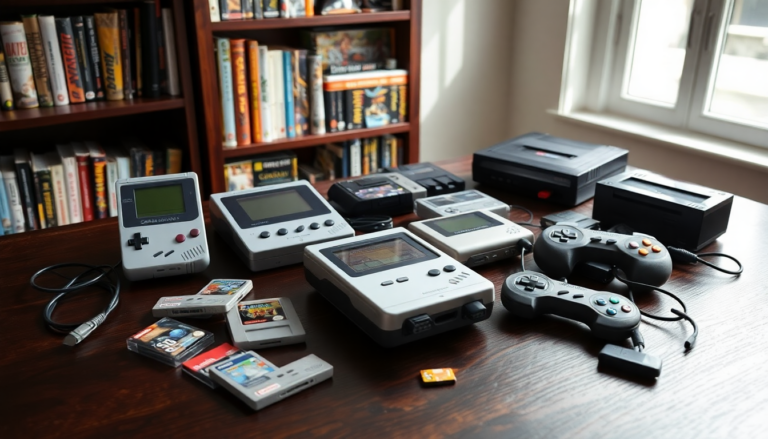Argomenti trattati
Have you noticed the buzz around retro gaming lately? It seems like everywhere you turn, there are gadgets that take us back to our childhoods, especially those reminiscent of the beloved Game Boy Advance. These devices aren’t just affordable and portable; they also have the amazing ability to emulate a huge library of games from consoles that were popular before the year 2000. But here’s the catch: while they offer a nostalgic gaming experience, they also bring along a tangled mess of legal issues, particularly concerning pre-loaded game ROMs. This raises a lot of questions about copyright infringement that aren’t going unnoticed by authorities.
The popularity of retro gaming gadgets
In recent years, retro gaming gadgets have attracted a significant following, appealing to both die-hard enthusiasts and casual gamers. Their charm lies in the way they capture the essence of classic gaming while giving users access to a vast library of titles. One notable voice in this space is Francesco Salicini, an Italian YouTube gamer known as Once Were Nerd. His detailed reviews and deep dives into these gadgets have not only garnered attention but also sparked a police investigation, shedding light on the risky waters of engaging with these devices.
At the heart of Salicini’s investigation are the pre-loaded ROMs that often come bundled with these gadgets. Many of them boast hundreds, if not thousands, of games, which immediately raises red flags regarding piracy and copyright violations. Under Italian law, the possession and distribution of pirated content can lead to serious consequences, including hefty fines and even imprisonment. Salicini’s experience serves as a cautionary tale for anyone involved in the retro gaming community, whether as a creator or a consumer.
The legal gray area of pre-loaded ROMs
The crux of the controversy revolves around the pre-loaded ROMs that many of these gadgets feature. Some manufacturers are known to include these files as part of their product offerings, which directly contradicts copyright legislation. Take for instance a popular set-top box that was advertised on StackSocial, boasting over 70,000 titles from various consoles. It’s clear that amassing such an extensive library without crossing into piracy would be nearly impossible.
But the implications don’t stop with the manufacturers. Consumers who buy these gadgets may find themselves unwittingly caught up in the legal ramifications. It raises a critical question: could they be held responsible for the manufacturer’s questionable practices? Furthermore, we can’t ignore the impact that reviews and promotions might have in potentially complicating the situation. Salicini’s case highlights the risks inherent in navigating this murky landscape.
The future of retro gaming and copyright enforcement
As retro gaming gadgets continue to gain traction, the likelihood of legal challenges from major gaming companies is on the rise. Giants like Nintendo and Sega have a reputation for being vigilant in protecting their intellectual property, and the availability of easily accessible pirated ROMs only fuels their determination. It wouldn’t be surprising to see these companies resort to litigation, which could ultimately lead to the removal of certain products from major markets.
So, what does the future hold for retro gaming gadgets? Much will depend on how manufacturers respond to this ever-evolving legal landscape. Will they find ways to offer legitimate products that respect copyright laws, or will they continue to operate in the shadows of piracy? For both consumers and creators, staying informed about these developments is crucial in navigating the dynamic world of retro gaming.

